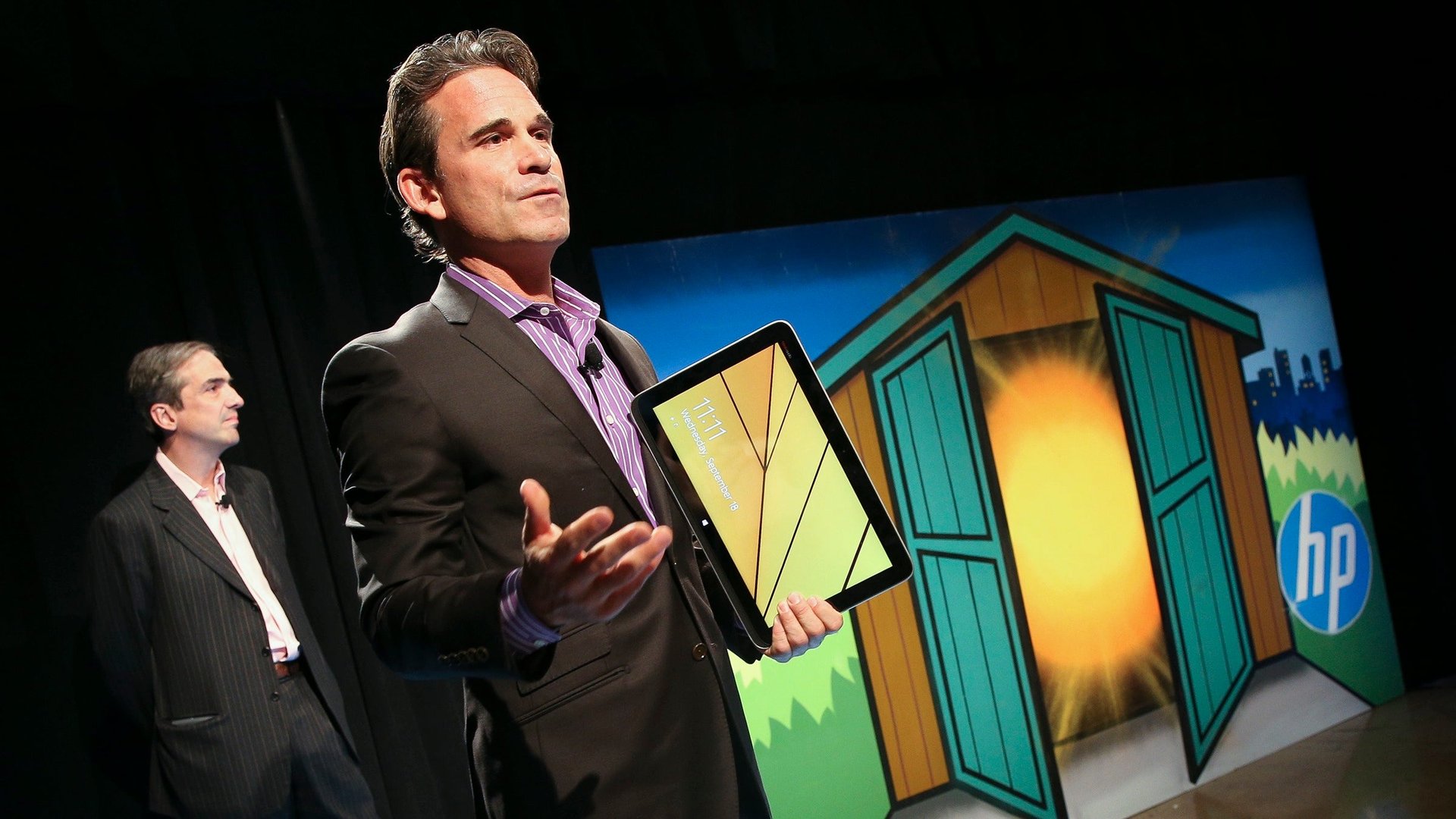How long before US firms stop making PCs altogether?
The past 30 days are littered with the corporate wreckage of years of declining PC sales—or at least, the kind of PCs that run Windows. On February 4, Nikkei reported that Sony is selling its money-losing Vaio PC division to investment fund Japan Industrial Partners for $490 million. Gartner and IDC announced that sales of PCs were down 10% in 2013—leading HP, which has refused to trade profits for market share, to cede its title (paywall) of the world’s biggest manufacturer of PCs by volume. Dell is laying off between 15,000 employees (according to sources outside the company) and 2,000 employees (according to sources within it). We’ll probably never know the actual number, since the company is now private.


The past 30 days are littered with the corporate wreckage of years of declining PC sales—or at least, the kind of PCs that run Windows. On February 4, Nikkei reported that Sony is selling its money-losing Vaio PC division to investment fund Japan Industrial Partners for $490 million. Gartner and IDC announced that sales of PCs were down 10% in 2013—leading HP, which has refused to trade profits for market share, to cede its title (paywall) of the world’s biggest manufacturer of PCs by volume. Dell is laying off between 15,000 employees (according to sources outside the company) and 2,000 employees (according to sources within it). We’ll probably never know the actual number, since the company is now private.
Lenovo may be the #1 manufacturer of PCs in the world, but HP and Dell are still #2 and #3, and have 16.2% and 11.6% of the market. So can we imagine a world in which they’re not selling PCs at all?
HP is leaving the PC business before the PC business leaves it
The old adage about how the stone age didn’t end for a lack of stones applies here. HP CEO Meg Whitman has said that she believes there will be a substantial market for tablets specialized for business, and the company is pushing Android, not Windows, on new devices aimed at this market. HP also makes what is arguably the best Google Chromebook aimed at everyday consumers. Since 2011, rumors have surfaced and resurfaced that HP might spin off its PC division entirely. Whichever strategy the company pursues, it doesn’t look like its future is selling boxes that run Microsoft Windows.
Dell’s future is probably in the cloud
Both HP and Dell have a robust business selling the servers that power the cloud. This isn’t going away any time soon, and both companies continue to innovate in cloud hardware. Recent moves by Dell—such as a tiny “PC” no bigger than a key fob that turns any monitor into a network-connected computer—suggest the company is hedging its bets against the possibility that going private won’t save its low-margin PC business. Michael Dell himself has said that his company is adopting a strategy similar to HP’s, in which Dell will sell tablets for the enterprise and whatever other (non-PC) form factors the market seems to want.
The low margin PC business will be left to the players who are best at it
An excellent data dive on the terrible margins of the PC business from Charles Arthur at the Guardian shows us how profit on laptops and desktops remain stubbornly in the range of 2-3%. As PC sales continue to decline, further consolidation among PC makers seems inevitable. The real money in hardware isn’t in hardware at all, after all, but in whatever software and services attached to devices can also be sold. That’s where Dell and HP are strong among businesses—both companies sell “solutions,” like their predecessor into the PC-less world of corporate IT, IBM.
Whether this will happen gradually or suddenly depends on whether Dell shifts direction quickly and HP sells off its PC unit. But inevitably, the commodification of PCs is a powerful driver for American companies to get out of PCs and move up the value chain into higher-margin businesses. What’s left will be Chinese and Taiwanese manufacturers with the cost advantages of being close to the supply chains that already supply virtually all the parts that go into PCs branded HP and Dell—Lenovo, Acer and Asus.